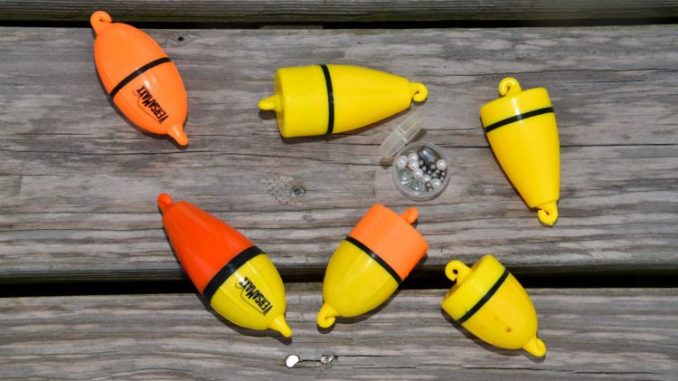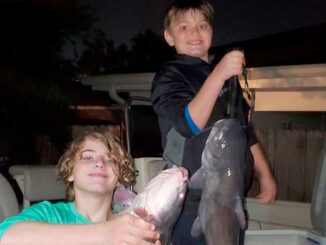
Fishing with popping corks, like any other technique, is an art. Steve Kissee offered some tips for effective use of popping corks. Some are specific to his Versamaxx corks; others apply to the use of any brand of cork.
• When you fish with a popping cork, you want to make commotion. That’s what attracts fish. Popping cork noise comes from two things: rattles and water displacement.
• Charlie Thomason (a noted St. Bernard fishing guide) likes Versamaxx corks for fishing for redfish because he feels that redfish are more sensitive to vibration. His preferred beads are the glass ones.
• Speckled trout love a high-pitched rattle. Steel beads are the best and the best cork is the oval one. They are made with thinner plastic. The oval cork doesn’t make as much water displacement commotion, so I wanted it thinner.
• As soon as the cork hits the water, drop your rod tip and let the line lie on top of the water to see it. Line tension should be balanced: not too tight or a pop will move the cork too much, and not too slack or you can’t get a good hook set.
• Add a #3 split shot about 5 inches above the hook to keep the shrimp deep rather than at the surface.
• An original cork, with its flat top, is better than an oval cork for keeping the bait in place when it is important to fish near structure like rocks.
• A cork isn’t the answer to everything. You have to know when to take them off. A few weeks ago, we were catching fish, but Brian took the cork off to free-line. He started catching big fish. The big trout were under the smaller ones. That’s why a cork that’s easy to take off and put on is important.
• Don’t be a baitcasting reel snob. Use a medium weight spinning reel. They are more forgiving with all the weight of the cork on the line. Also, the wind will cause backlashes.
• Experiment with depth. Trout will hold at different depths.
• Experiment with popping frequency. When you first begin fishing a spot, pop the heck out of the cork. If you don’t get a bite, reduce the popping gradually until you get to just casting and letting it sit there. On real calm days, too much popping can spook fish. And on real rough days, popping doesn’t help much because too much natural commotion exists.
